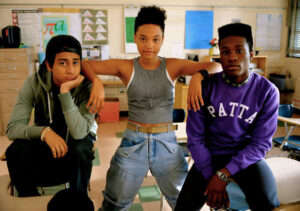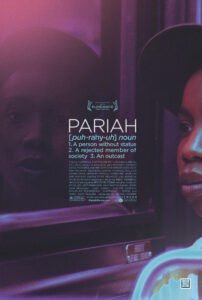
Recent conversations on social media have centered around the similar point of the absence of Black coming of age films, in addition to recent Black romantic comedies and Black science fiction series/films.
When a coming of age film comes to mind, does the movie feature a white protagonist and primarily white cast? Movies like “Booksmart,” “Perks of Being a Wallflower” and “Lady Bird” are all award-winning films that capture a teen’s psychological and emotional growth from youth to adulthood. However, coming of age films that feature and focus on a Black protagonist and Black issues are far more rare.
“Moonlight” is a 2016 film written and directed by Barry Jenkins, and the plot consists of a young Black boy discovering his sexuality and masculinity in his environment. “Moonlight” won several awards, including an Oscar for Best Picture. Jenkins is also a Florida State University alum after graduating from the university’s College of Motion Arts.
Recent FSU alum Amanda Mary-Jean also received her master’s degree from the film school and happens to be a School of Journalism and Graphic Design alumnaof Florida Agricultural & Mechanical University.
“Most of the time, Black coming of age films come with some kind of trauma or pain. There’s room for more movies like ‘Booksmart’ or something with comedic ways and a diverse cast,” Jean-Mary said. “There’s a conversation with colorism right now — it’s about making the cast just as diverse as the community is, and also not trying to make the Black version of a movie like “Booksmart.”
Jean-Mary contributed many great points, which lead to the question — where exactly are these stories that are being told in a cinematic form about Black people and their culture?
Many small independent filmmakers — primarily women, people of color and queer folks — are on the behind-the-scenes of underrated and underrepresented coming of age films that do not feature a straight, white male protagonist.
In this article on Shadow and Act, the writer Nilja Mumin shares how to avoid discrediting current independent filmmakers and lower budget movies with the simple, yet potentially harmful statement: “We need more Black coming of age films.”

“When we make definitive statements about the totallack of coming of age films about Black girls, we might actually aid in the erasure of the narratives that do exist, and that will exist,”Mumin wrote in her 2019 article.
Although there is a higher demand for highly acclaimed Hollywood movies that portray Black women in healthy relationships, laughing and having a normal life, there is a plentiful amount of young, unknown filmmakers who are currently making or have previously made lesser known Black coming of age films, due to low funding or little visibility about the film.
FAMU student Jazmin Johnson is a business administration and president of FAMU Focus, the campus’ film club. Johnson is the founder of her clothing line blkflmmkr and recently joined the team for Beats’ by Dre HBCU Black Futures Creator Program.
“I’ve done a whole thing where I try to fundraise for a film, but I truly think you can make a film on any budget,” Johnson said. “To tell a story is to tell a story.”
Coming of age films like “Pariah,” directed by FAMU alumna Dee Rees, did not receive the recognition it deserved for its cinematic point-of-view on a Black girl’s sexuality and self-discovery. Supporting independent films written and directed by women, people of color and queer filmmakers can go a long way, and hopefully, we will see more of them on the big screen. For now, you can support shows like “Watchmen,” “Selah and the Spades” and “Lovecraft Country” that all feature a Black protagonist.